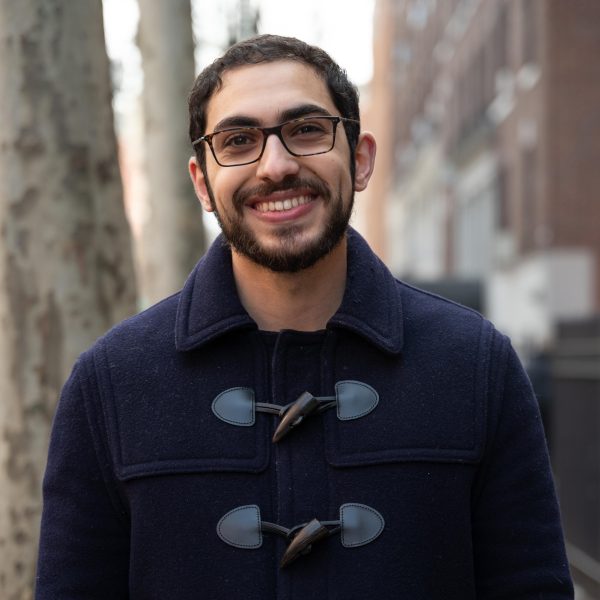As of Oct. 19, at least 21 journalists have been killed in the conflict between the Palestinian militant group Hamas and the Israeli military. Among the journalists killed, 17 were Palestinian, three were Israeli and one was Lebanese, according to the Committee to Protect Journalists. Eight were reported injured and three are either missing or detained.
Hamas — which has controlled the Gaza Strip since 2007 — launched a rocket attack into nearby Israeli towns on Oct. 7, killing over a thousand civilians and taking more than 200 hostage. The attack was followed by Israeli military airstrikes into the blockaded Gaza Strip, which has killed nearly 4,000 Palestinians, according to the Gaza Health Ministry. The Israeli military ordered more than 1 million residents in northern Gaza to evacuate to the south amid an escalation in besieged bombardment.
The CPJ called for an investigation into the killing of Mohammad El-Salhi, one of the six journalists killed the day of the attack. El-Salhi was shot dead near a Palestinian refugee camp in the central Gaza Strip by Israeli forces. Nine Palestinian journalists have been killed in Israeli airstrikes in Gaza, and three Israeli journalists were killed in Hamas’ attack in southern Israel. The conflict widened to neighboring southern Lebanon, with an Israeli airstrike killing a Reuters video journalist in a crossfire with the Lebanese militant group Hezbollah last Friday.
On Monday, the Israeli government proposed “new emergency regulations” that would allow for the censorship of media broadcasts, specifically Al Jazeera, in its coverage of the current Israel-Hamas war. Israeli communications minister Shlomo Karhi said the regulations would allow for the halting of media that serves as a basis for “enemy propaganda.”
This isn’t the first time Israel has attempted to censor the Qatar-based network, with Israeli Prime Minister Benjamin Netanyahu having worked to close the publication’s Jerusalem offices in 2017. The initial attempt came after the Israeli government implemented heightened security measures around Al-Aqsa mosque and an increased number of Israeli settlements in the West Bank.
In one of the conflict’s most recent developments, a blast struck a hospital in Gaza City, killing hundreds of Palestinians. Hamas accused Israel of hitting the hospital with an airstrike, while the Israeli military pointed to a rocket misfire by a different group of Palestinian militants for the attack. Since then, the CPJ has joined over 200 organizations in calling for an immediate humanitarian ceasefire to prevent further loss in “the deadliest week for journalists” in the region.
The current war between Hamas and Israel began last week, but tensions between the two entities have existed since Israel blockaded the Gaza Strip in 2007, effectively cutting off the more than 2 million Palestinians in the region from the rest of the country and the occupied Palestinian territories. Several wars on Gaza have taken place since, including Israel’s full-scale invasion of the region in 2014 that took the lives of 2,251 Palestinians and 66 Israelis — seven of whom were journalists.
Prior to the current war, 25 journalists and media workers have been killed in Israel and the occupied Palestinian territories since 2000, according to the CPJ. In May of last year, a Palestinian American Al Jazeera journalist, Shireen Abu Akleh, was killed by an Israeli sniper during a military raid in Jenin, a city in the occupied West Bank. The United States launched an investigation into her killing, but the Israeli government has refused to cooperate despite an upcoming report conducted by the United Nations.
While the conflict between Hamas and Israel in the Gaza Strip is a prominent source of devastation and crisis in the southern Levant region, the decadeslong tensions between the Israeli state — including the occupied West Bank and east Jerusalem — and its Palestinian inhabitants have led to tens of thousands of deaths on both sides and the displacement of hundreds of thousands of Palestinians since 1948.
The Rafah crossing between Gaza and Egypt has been shut down since last week’s Hamas attacks, with hundreds of tons of humanitarian aid left stuck on the Egyptian side of the border. After his visit to Israel on Wednesday, President Joe Biden announced that the United States would “redouble American military assistance to the country” in addition to approving the flow of Gaza’s aid through the Egyptian border. The crossing is not expected to open until Friday.
Contact Yezen Saadah at [email protected].
























































































































































